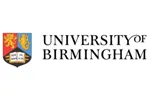

the United Kingdom
University of Birmingham| The award | How you will study | Study duration | Course start | Domestic course fees | International course fees |
|---|---|---|---|---|---|
| MSc | Full-time | 1 year | September | GBP 7020 per year | GBP 17100 per year |
| MSc | Part-time | 2 years | September | GBP 3510 per year | GBP 0 per year |
Climate change, deforestation and unsustainable use of resources are all issues at the top of the environmental agenda. An understanding of the interactions between the environment and economics is essential for developing appropriate policies to tackle global issues in the long term.
Environmental and natural resource economists deal every day with the most challenging problems facing mankind: global climatic change, environmental pollution, deforestation, biodiversity loss, water scarcity and food poverty, to name but a few. The Environmental and Natural Resource Economics MSc programme is unique in that it combines a solid foundation in key areas of economics, with specialized field courses. Our students receive a thorough grounding in macroeconomics, microeconomics and econometrics, alongside an in-depth knowledge of the economics and policy of environmental pollution, renewable and non-renewable resource use, as well as the interaction between globalization and environmental degradation. In addition, we emphasise the development of the quantitative skills necessary to understand and perform empirical work in economics, with particular attention to the valuation of environmental goods in monetary terms.
During your time studying the Environmental and Natural Resource Economics MSc at Birmingham Business School, you can expect to learn about: global environmental pollutants and climate change, emissions trading schemes, the links between trade and the environment, the role of innovation and technological change policy in securing a transition to a low carbon economy, the optimal management of fisheries and forests as well as fossil fuels and mineral resources, hedonic analysis and choice experiments as methods of valuing intangible goods, how to modify national accounts to reflect resource depletion and pollution.
Below are some suggested courses at other providers that you may also be interested in:
Master in Transportation Design Master Degree
IAAD. - Institute of Applied Art and Design
Find out moreIf you do not meet the entry requirements for this course then consider one of these postgraduate preparation courses from another institution:
Graduate Diploma of Engineering (Industrial Automation)
Engineering Institute of Technology
Find out moreThere are 944 other courses listed from University of Birmingham. A selection of these are displayed below:
Accounting and Finance with Language (French or German) N4R1/N4R2 BSc
University of Birmingham
Find out moreAdvanced Chemical Engineering (with options in Food Processing, Pharmaceutical Technology and Business Studies) MSc, Postgraduate Diploma
University of Birmingham
Find out moreSee other universities in Birmingham
Find out more about studying in the United Kingdom